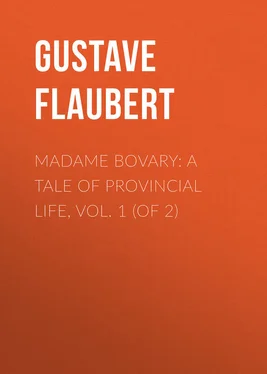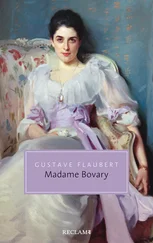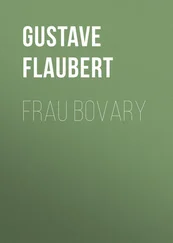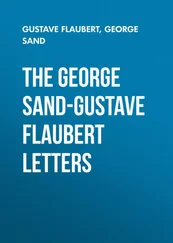Gustave Flaubert - Madame Bovary - A Tale of Provincial Life, Vol. 1 (of 2)
Здесь есть возможность читать онлайн «Gustave Flaubert - Madame Bovary - A Tale of Provincial Life, Vol. 1 (of 2)» — ознакомительный отрывок электронной книги совершенно бесплатно, а после прочтения отрывка купить полную версию. В некоторых случаях можно слушать аудио, скачать через торрент в формате fb2 и присутствует краткое содержание. Жанр: foreign_antique, foreign_prose, на английском языке. Описание произведения, (предисловие) а так же отзывы посетителей доступны на портале библиотеки ЛибКат.
- Название:Madame Bovary: A Tale of Provincial Life, Vol. 1 (of 2)
- Автор:
- Жанр:
- Год:неизвестен
- ISBN:нет данных
- Рейтинг книги:5 / 5. Голосов: 1
-
Избранное:Добавить в избранное
- Отзывы:
-
Ваша оценка:
- 100
- 1
- 2
- 3
- 4
- 5
Madame Bovary: A Tale of Provincial Life, Vol. 1 (of 2): краткое содержание, описание и аннотация
Предлагаем к чтению аннотацию, описание, краткое содержание или предисловие (зависит от того, что написал сам автор книги «Madame Bovary: A Tale of Provincial Life, Vol. 1 (of 2)»). Если вы не нашли необходимую информацию о книге — напишите в комментариях, мы постараемся отыскать её.
Madame Bovary: A Tale of Provincial Life, Vol. 1 (of 2) — читать онлайн ознакомительный отрывок
Ниже представлен текст книги, разбитый по страницам. Система сохранения места последней прочитанной страницы, позволяет с удобством читать онлайн бесплатно книгу «Madame Bovary: A Tale of Provincial Life, Vol. 1 (of 2)», без необходимости каждый раз заново искать на чём Вы остановились. Поставьте закладку, и сможете в любой момент перейти на страницу, на которой закончили чтение.
Интервал:
Закладка:
To realize this principle in work you must proceed scientifically, and, in this connection, we may notice that Flaubert's idea is that of Leconte de Lisle in the preface to his Poèmes Antiques , and of Taine in his lectures upon L'Idéal dans l'art .
Romanticism had confounded the picturesque with the anecdotal; character with accident; colour with oddity. Han d'Islande , Nôtre-Dame de Paris and some romances of Balzac, the first and poorest, not signed with his name, may serve as an example. The classic writers on their side, had not always distinguished very profoundly the difference between the general and the universal, the principal and the accessory, the permanent and the superficial. We see this in the French comedies of the eighteenth century, even in some of Molière's – in his L'Avare and his Le Misanthrope , for example. Flaubert believed that a means of terminating this conflict is to be found in method; and that is the reason why, if we confine ourselves wholly to the consideration of the medium in his works, we shall find the Tentation de Saint Antoine entirely romantic; while, as a retaliation, nothing is more classic than Madame Bovary .
The reason for this is, that in his subject, whatever it was, Carthaginian or low Norman, refined or bourgeois , modern or antique, he saw only the subject itself, with the eyes and after the manner of a naturalist, who is concerned only in knowing thoroughly the plant or the animal under observation. There is no sentiment in botany or in chemistry, and in them the desideratum is truth. Singleness of aim is the primary virtue in a savant . Things are what they are, and we demand of him that he show them to us as they are. We accuse him of lying if he disguises, weakens, alters or embellishes them.
Likewise the artist! His function is ever to "represent: " and in order to accomplish this, he should, like the savant, mirror only the facts. After this, what do the names "romanticism" or "classicism" signify? Their sole use is to indicate the side taken; they are, so to speak, an acknowledgment that the writer is adorning the occurrence he is about to represent. He may make it more universal or more characteristic than nature! But, inversely, if all art is concentrated upon the representation, what matters the subject? Is one animal or plant more interesting than another to the naturalist? Does a name matter? All demand the same attention. Art can make exception in its subjects no more than science.
If we ask in what consists the difference between science and art, on this basis, Flaubert, with Leconte de Lisle and with Taine, will tell us that it is in the beauty which communicates prestige to the work, or in the power of form.
"What I have just written might be taken for something of Paul de Kock's, had I not given it a profoundly literary form," wrote Flaubert, while he was at work on Madame Bovary ; "but how, out of trivial dialogue, produce style? Yet it is absolutely necessary! It must be done!" He went further still, and persuaded himself that style had a value in itself, intrinsic and absolute, aside from the subject. In fact, if the subject had no importance of its own, and if there were no personal motives for choosing one subject rather than another, what reason would there be for writing Madame Bovary or Salammbô ? One alone: and that to "make something out of nothing," to produce a work of art from things of no import. For though everyone has some ideas, and everyone has had experience in some kind of life, it is given to few to be able to express their experience or their ideas in terms of beauty. This, precisely, is the goal of art.
Form, then, is the great preoccupation of the artist, since, if he is an artist, it is through form, and in the perfection or originality of that form, that his triumph comes. Nothing stands out from the general mediocrity except by means of form; nothing becomes concrete, assuming immortality, save through form. Form in art is queen and sovereign. Even truth makes itself felt only through the attractiveness of form. And further, we cannot part one from the other; they are not opposed to each other; they are at one; and art in every phase consists only in this union. It is the end of art to give the superior life of form to that which has it not; and finally, this superior life of form, this magic wand of style, rhythmic as verse and terse as science, by firmly establishing the thing it touches, withdraws it from that law of change, constant in its inconstancy, which is the miserable condition of existence.
All passes; art in its strength
Alone remains to all eternity;
The bust
Survives the city.
This it is that makes up the charm, the social dignity, and the lasting grandeur of art.
This is not the place to discuss the "æsthetic" quality, and I shall content myself with indicating briefly some of the objections it has called forth.
Has form indeed all the importance in literature that Flaubert claimed for it? And what importance has it in sculpture, for example, or in painting? Let us grant its necessity. Colour and line, which are, so to speak, the primal elements in the alphabet of painting and of sculpture, have not in themselves determined and precise significance. Yellow and red, green and blue are only general and confused sensations. But words express particular sentiments and well-defined ideas, and have a value that does not depend upon the form or the quality of the words. You cannot, then, in using them, distinguish between significance and form, or combine them independently of the idea they are intended to convey, as is possible with colours and with lines, solely for the beauty that results from combination. If literary art is a "representation," it is also something more; and the lapse in Flaubert, as in all those who have followed him in the letter, lies in having missed this distinction. You cannot write merely to represent; you write also to express ideas, to determine or to modify convictions; you write that you may act, or impel others to act: these are effects beyond the power of painting or of sculpture. A statue or a picture never brought about a revolution; a book, a pamphlet, nay, a few fiery words, have overturned a dynasty.
It is no longer true, as a whole generation of writers has believed, that art and science may be one and the same thing; or that the first, as Taine has said, may be an "anticipation of the second." We could not in the presence of our fellow-creatures and their suffering affect the indifference of a naturalist before the plant or the animal he is studying. Whatever the nature of "human phenomena" may be, we in our quality as man can only look at them with human eyes, and could temptation make us change our point of view, it would properly be called inhuman.
One might add that, if it is not certain that nature was made for man, and if, for that reason, science is wholly independent of conscience, as we take it, it is otherwise with art. We know that man was not made for art, but that art was made for man. We forget each time we speak of "art for art's sake" that there is need precisely to define the meaning of the expression and to recall that but for truth art could not have for its object the perfecting of political institutions, the uplifting of the masses, the correction of customs, the teachings of religion, and that although this may lead finally to the realization of beauty, it nevertheless remains the duty of man, and consequently, is human in its origin, human in its development, and human in its aim.
Upon all these points, it is only necessary to think sensibly, as also upon the question – which we have not touched upon, – of knowing under what conditions, in what sense, and in what degree the person of the artist can or should remain foreign to his work.
Читать дальшеИнтервал:
Закладка:
Похожие книги на «Madame Bovary: A Tale of Provincial Life, Vol. 1 (of 2)»
Представляем Вашему вниманию похожие книги на «Madame Bovary: A Tale of Provincial Life, Vol. 1 (of 2)» списком для выбора. Мы отобрали схожую по названию и смыслу литературу в надежде предоставить читателям больше вариантов отыскать новые, интересные, ещё непрочитанные произведения.
Обсуждение, отзывы о книге «Madame Bovary: A Tale of Provincial Life, Vol. 1 (of 2)» и просто собственные мнения читателей. Оставьте ваши комментарии, напишите, что Вы думаете о произведении, его смысле или главных героях. Укажите что конкретно понравилось, а что нет, и почему Вы так считаете.












